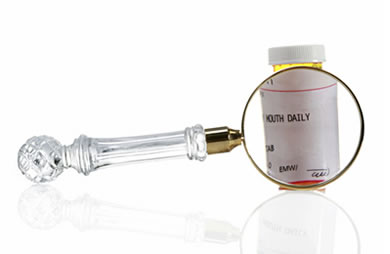|
SparkPeople.com member Eboston421 recently asked about margarine versus butter and which is better nutritionally. The discussions of margarine versus butter began in the 1990s, when research related to trans fatty acids in margarines was coming out. Both butter and margarine derive 100 percent of their calories from fat. Although we all need a little fat in our diets (but not more than 30% of our total daily caloric intake), we should all try to choose fats of the healthiest variety whenever possible. So which is the better choice for you? Most studies and health experts agree that neither is ideal. Here are the highlights of each: Margarine: • Is made from vegetable oils, so it contains no cholesterol • Is typically (but not always) higher in healthy polyunsaturated and monounsaturated fats • Is often processed through hydrogenation, which adds unhealthy trans fats. The more solid the margarine is at room temperature, the more trans fats are usually present Butter: • Is made from animal (milk) fat and contains cholesterol • Is higher in saturated fat, which is considered unhealthy • Is non-hydrogenated, and so it is free of trans fats Most health organizations recommend margarine over butter for heart health reasons. However, not all margarines are created equally, and some can be worse for your cardiovascular health than butter. With so many margarine brands on the market, how do you know which are healthy? To start, remember that the most "solid" margarines contain the most trans fat. So stick margarine contains the most trans fat, followed by tub margarines then whipped varieties. Liquid margarines have the least trans fats and are good choices. Here are some helpful guidelines to help you as you navigate the grocery dairy case. Select a margarine that has: • Liquid vegetable oil (such as "olive oil" or "canola oil") listed as the first ingredient • 0 grams trans fat per serving (or the lowest trans fat content possible) • Less than 2 grams of total saturated fat PLUS trans fats per serving (So if it has 0 grams of trans fat then it should have no more than 2 grams of total saturated fat per serving.) • If you have high LDL (bad) cholesterol (over 160 mg/dL), you may also want to select a margarine that has been fortified with plant sterols as recommended by the American Heart Association. These guidelines can be found in basic spreads (I Can't Believe It's Not Butter), canola spreads (Weight Watchers Canola Spread), olive oil spreads (Bertoli Light), polyunsaturated spreads (Melrose Omega 3 Care) and cholesterol-lowering spreads (Flor Pro-activ Light). With so many categories and choices in each category, which is the best? Well, the last deciding factor has to be taste preferences. Which one do you think tastes the best? So, there you have it Eboston421, margarine over butter except on those special occasions, when only the taste of butter will do! If you have a question for us, send it to editor@dailyspark.com and then check the dailySpark each day—you may just find the answer to YOUR question! |
More From SparkPeople
|















